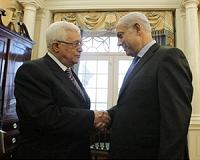 |
Beirut, Lebanon (UPI) Oct 12, 2010 The U.S. administration wants to resume military aid, frozen by Congress in August, to Lebanon's armed forces amid suspicions Iranian-backed Hezbollah has heavily infiltrated Lebanese military intelligence. So far, with Syria reasserting its power over Lebanon once more, there's no sign Congress will relent. The pro-Israeli lobby claims that U.S. arms provided to the Lebanese military could end up in the hands of Hezbollah in its fight against the Jewish state. Also, Lebanon is gripped by a potentially explosive crisis between political forces led by Prime Minister Saad Hariri, backed by the West and Saudi Arabia, and Hezbollah, supported and armed by Iran and Syria. The two camps are battling for control of the armed forces. The outcome will determine whether the Americans continue to provide military aid, indeed whether Lebanon will remain within the U.S. orbit. Since 2005, following the assassination of Hariri's father, Rafik, five times prime minister and the country's leading statesman, the United States has provided military aid worth $700 million to the Lebanese army. The Hariri assassination, at the time widely blamed on Damascus, led to the withdrawal of Syrian forces from Lebanon, ending a 29-year quasi-occupation. The Americans sought to capitalize on the Syrian pullout and build up the long-neglected Lebanese military, deliberately kept weak over the years by the country's political barons to prevent a coup, to support the government dominated by Hariri's loyalists and their allies. Hezbollah has made a determined effort to ensure the army doesn't become strong enough to take on the Shiite movement and challenge its supremacy. The U.S. freeze on military aid, backed by Democrats and Republicans, followed an Aug. 3 border clash between the army and the Israeli military with fatalities on both sides. It was the first time the army had crossed swords with the Israelis. Such clashes were always between Hezbollah, which controls south Lebanon, and the Israelis. For many in Washington, that landmark incident indicated the Lebanese military was shifting from its long-held neutrality toward supporting Hezbollah. "More broadly, the incident has resurrected questions as to whether Washington's main policy objective for the Lebanese armed forces -- establishing state sovereignty throughout Lebanese territory -- is ultimately achievable," says U.S. analyst David Schenker. The amount of military aid frozen totals $100 million a year, a minute fraction of the $3 billion a year Washington provides Israel in military support or the estimated $60 billion in advanced weaponry it plans to sell to Saudi Arabia to counter Iran. But, as Schenker observed in an analysis for the Washington Institute for Near East Policy, where he is director of the Arab Politics Program, that aid "constitutes a significant portion of the LAF budget and carries great symbolism." Despite administration efforts to resume military aid to Lebanon, the prospect of the political climate changing sufficiently for Beirut to satisfy U.S. conditions, primarily preventing Hezbollah taking over the country and moving it into Iran's orbit, seems remote at this time. Diplomatic sources say the CIA and senior figures in Congress, are deeply concerned about what they see as Hezbollah's high-level penetration of military intelligence. Hezbollah, which muscled its way into Hariri's government several months ago, is clearly in the ascendant. Overt Syrian influence grows daily, shattering expectations that the 2005 Hariri killing brought together democratic political forces in Lebanon that would usher in a new era. The security services, which Damascus had controlled before the Hariri assassination, are reverting to Syrian mastery once more. Lebanese military intelligence is currently headed by Gen. Edmond Fadel, a Christian close to President Michel Suleiman, a Maronite Catholic and former army commander, who has sought to mediate between the rival political camps. But Shiite officers occupy many key commands in the department. Two of Fadel's principal deputies, Col. Abbas Ibrahim and Col. Hussein Youssef, are Shiite. So are the military intelligence regional chiefs in South Lebanon and the Bekaa Valley in the northeast along the border with Syria. These are Hezbollah strongholds where most of its missiles and other weapons are concentrated.
Share This Article With Planet Earth
Related Links
 Israel PM's freeze offer slammed as ploy to stall talks
Israel PM's freeze offer slammed as ploy to stall talksJerusalem (AFP) Oct 12, 2010 Prime Minister Benjamin Netanyahu's offer of a freeze on settlement building in exchange for Palestinian recognition of Israel's Jewish identity was widely seen on Tuesday as a ploy to complicate US-backed peace efforts. A day earlier, Netanyahu set out recognition of Israel as a Jewish state as his price for a renewal of a ban on construction in the occupied West Bank, seen as key to rescui ... read more |
|
| The content herein, unless otherwise known to be public domain, are Copyright 1995-2010 - SpaceDaily. AFP and UPI Wire Stories are copyright Agence France-Presse and United Press International. ESA Portal Reports are copyright European Space Agency. All NASA sourced material is public domain. Additional copyrights may apply in whole or part to other bona fide parties. Advertising does not imply endorsement,agreement or approval of any opinions, statements or information provided by SpaceDaily on any Web page published or hosted by SpaceDaily. Privacy Statement |